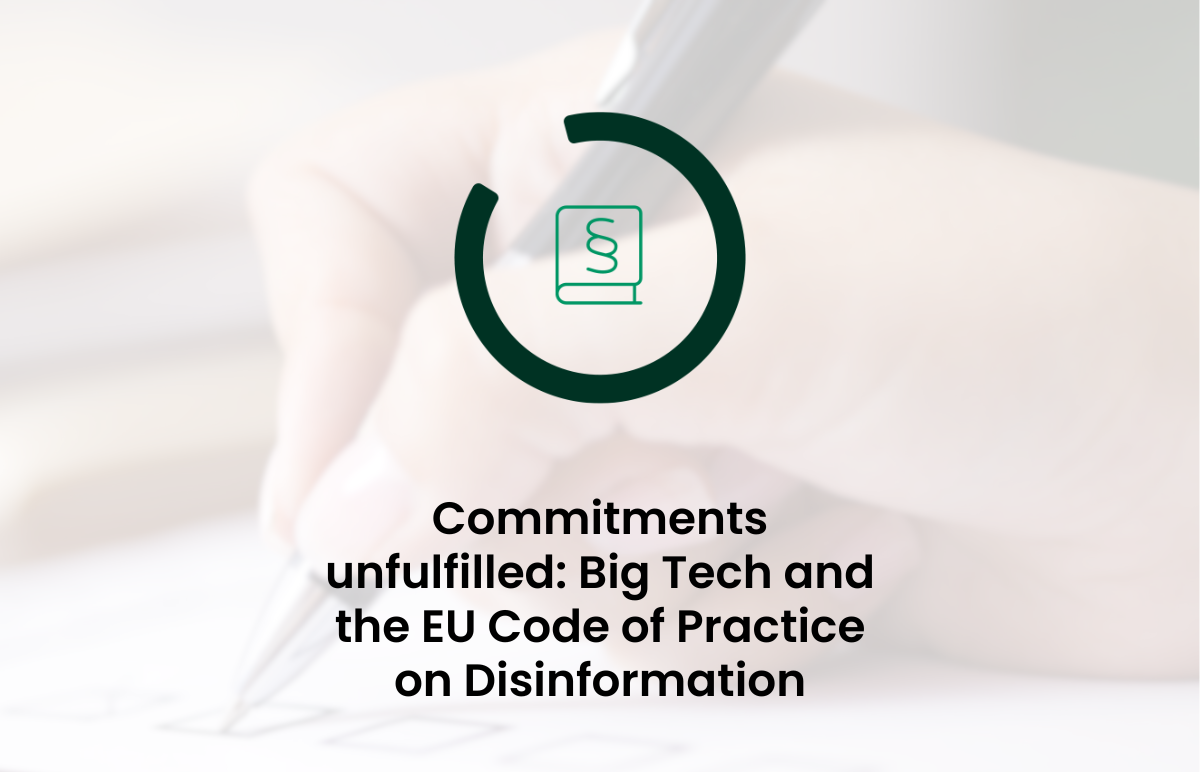
18 December 2024 – The European Fact-Checking Standards Network (EFCSN) has released a report which reviews the implementation of big tech companies’ commitments made to the EU Code of Practice on Disinformation. The EU Code of Practice on Disinformation will likely serve as a benchmark under the EU Digital Services Act for the mitigation of disinformation by these platforms. Based on the findings in the report, the EFCSN sees a need for most platforms to make significant changes to their strategy against mis- and disinformation and true commitments to the spirit of the Code in order to promote an environment where independent fact-checkers are empowered.
Among signatories of the Code of Practice, the report highlights major shortcomings in the platforms’ current efforts. Bing (Microsoft), for example, reported “additional fact-checking coverage” with organisations that have denied agreements in such terms. LinkedIn also still relies on one fact-checking organisation to cover 21 languages, and despite claims of expanding scope, fewer reviews of videos have happened versus previous years. Google has made possible the EFCSN’s ambitious Elections24Check project, but also still relies on the unfunded ClaimReview scheme, which is in direct contradiction with the Code of Practice.
Non-signatories, X/Twitter and Telegram are both critical actors in spreading disinformation in the EU, yet show a distinct lack of engagement with fact-checking, making both platforms extremely concerning for fact-checkers.
“The EFCSN urgently calls for the platforms to change their overall strategy in the fight against disinformation, establishing lasting partnerships with the fact-checking community, fully integrating their work in their moderation systems and giving adequate access to relevant data to effectively combat disinformation.”
The report, titled “Fact-checking and related Risk-Mitigation Measures for Disinformation in the Very Large Online Platforms: A systematic review of the implementation of big tech commitments to the EU Code of Practice on Disinformation”, was released on 18 December 2024 on the EFCSN website (access it here). It was developed by the EFCSN Policy Task Force, which is composed of representatives from EFCSN member organisations from across Europe. The review draws on the collective expertise of the European fact-checking community. It took place in September 2024, when the task force reviewed the new set of reports submitted by the main online platform and search engine Signatories of the Code of Practice on Disinformation as well as non-signatories X/Twitter and Telegram.
The release of the report comes at a time where the influence mis- and disinformation can have on our societies is stark, as is the influence big tech can have on promoting—or halting—its spread. While details are still emerging, the EFCSN has called on TikTok to increase its efforts in the fight against disinformation in the wake of the Romanian elections, when it became clear that malign foreign actors who spread disinformation had targeted the election. This is a responsibility that this report shows all platforms must step up in order to fulfil.
The European Fact-Checking Standards Network is an association of fact-checking organisations who commit to the standards of independence, transparency, and journalistic quality outlined in the European Code of Standards for Independent Fact-Checking Organisations.
Read the full report here: https://efcsn.com/report-fact-checking-vlops-2024/